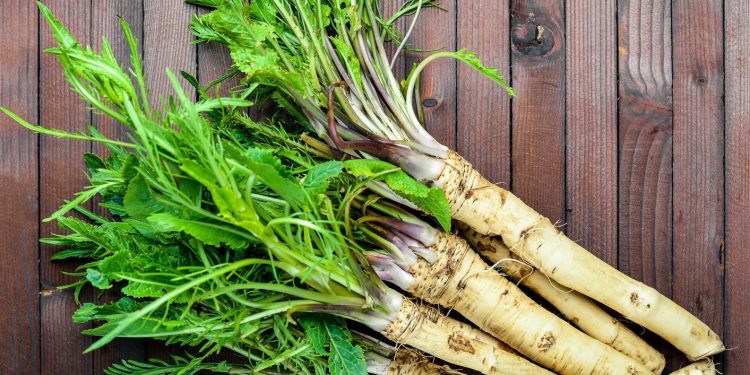Horseradish (Armoracia rusticana) is a popular crop among farmers and is known for its distinctive taste and aroma. However, beyond its culinary uses, horseradish also offers a host of health benefits that are often overlooked. In this article, we will explore the latest research on the health benefits of horseradish and its potential as a valuable crop for farmers.
Horseradish is a root vegetable that has been used for centuries for its medicinal properties. According to recent research, horseradish contains high levels of antioxidants and has anti-inflammatory properties. It has also been shown to have antibacterial and antiviral effects, making it a potential natural remedy for various illnesses. Horseradish has been used to treat respiratory conditions, digestive issues, and even cancer.
Furthermore, horseradish is also a rich source of vitamins and minerals such as vitamin C, potassium, calcium, and magnesium. It has also been shown to aid in weight loss and improve digestion.
In terms of cultivation, horseradish is a hardy crop that can withstand a wide range of temperatures and soil conditions. It is typically grown in cooler climates and requires well-draining soil. Horseradish is propagated through root cuttings, and the plants can be harvested in the fall after the first frost.
In conclusion, horseradish is not only a delicious addition to meals but also offers numerous health benefits. Its potential as a valuable crop for farmers should not be overlooked, as it is a hardy plant that can be easily cultivated. As research on its health benefits continues to emerge, horseradish may become an increasingly popular crop in the agriculture industry.
#Horseradish #Agriculture #HealthBenefits #Cultivation #Farmers #Antioxidants #Anti-inflammatory #Antibacterial #Antiviral #Vitamins #Minerals #WeightLoss #Digestion #Cancer #RootVegetable












